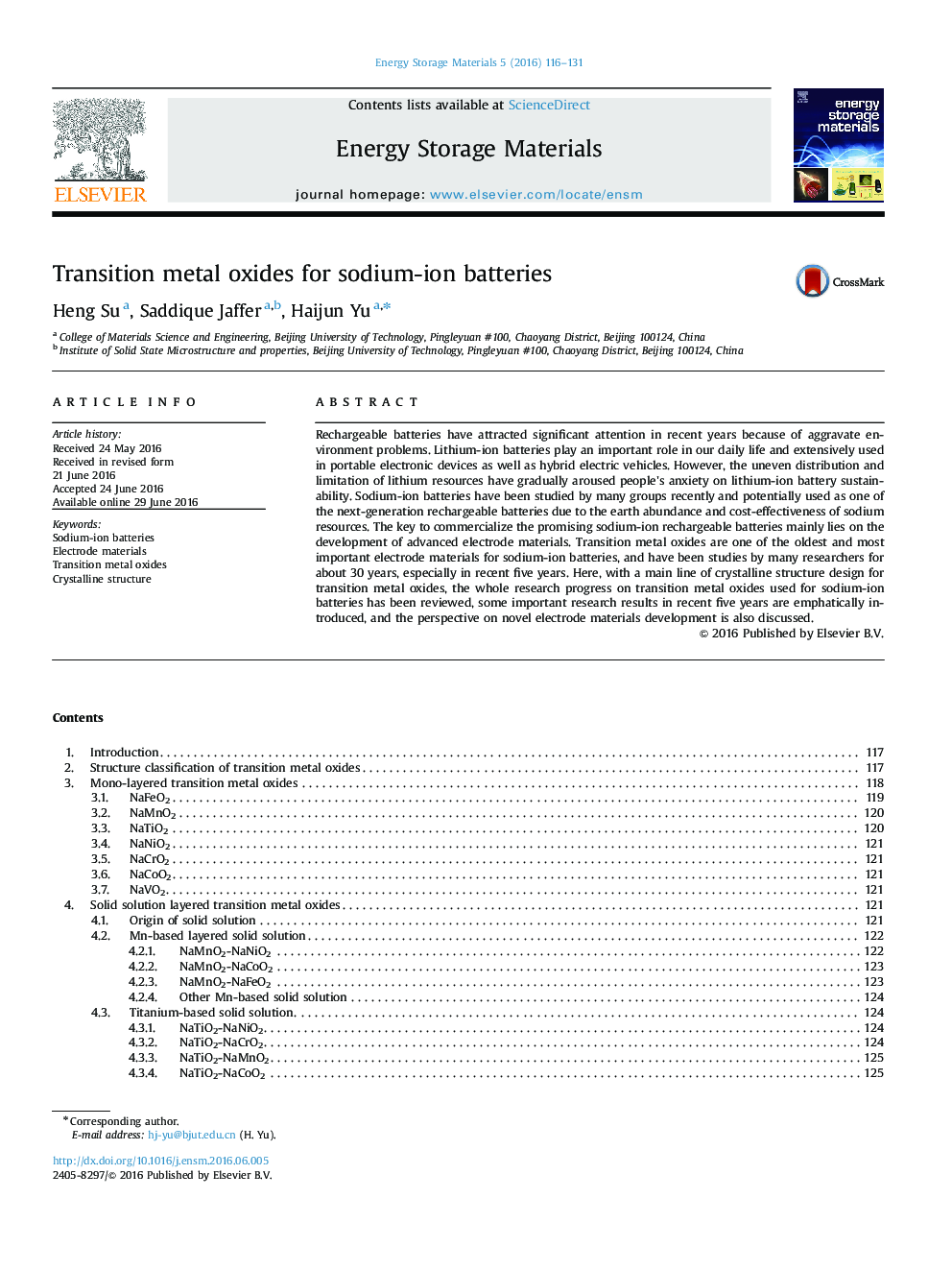| Article ID | Journal | Published Year | Pages | File Type |
|---|---|---|---|---|
| 1564554 | Energy Storage Materials | 2016 | 16 Pages |
Abstract
Rechargeable batteries have attracted significant attention in recent years because of aggravate environment problems. Lithium-ion batteries play an important role in our daily life and extensively used in portable electronic devices as well as hybrid electric vehicles. However, the uneven distribution and limitation of lithium resources have gradually aroused people's anxiety on lithium-ion battery sustainability. Sodium-ion batteries have been studied by many groups recently and potentially used as one of the next-generation rechargeable batteries due to the earth abundance and cost-effectiveness of sodium resources. The key to commercialize the promising sodium-ion rechargeable batteries mainly lies on the development of advanced electrode materials. Transition metal oxides are one of the oldest and most important electrode materials for sodium-ion batteries, and have been studies by many researchers for about 30 years, especially in recent five years. Here, with a main line of crystalline structure design for transition metal oxides, the whole research progress on transition metal oxides used for sodium-ion batteries has been reviewed, some important research results in recent five years are emphatically introduced, and the perspective on novel electrode materials development is also discussed.
Related Topics
Physical Sciences and Engineering
Energy
Fuel Technology
Authors
Heng Su, Saddique Jaffer, Haijun Yu,
